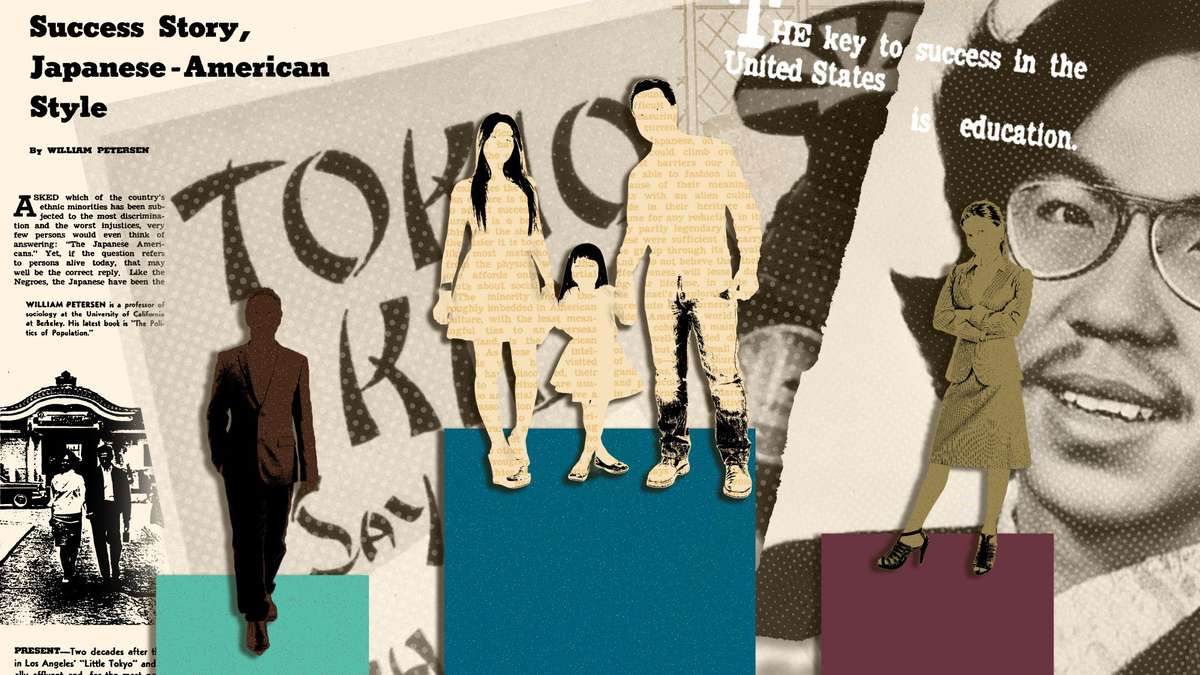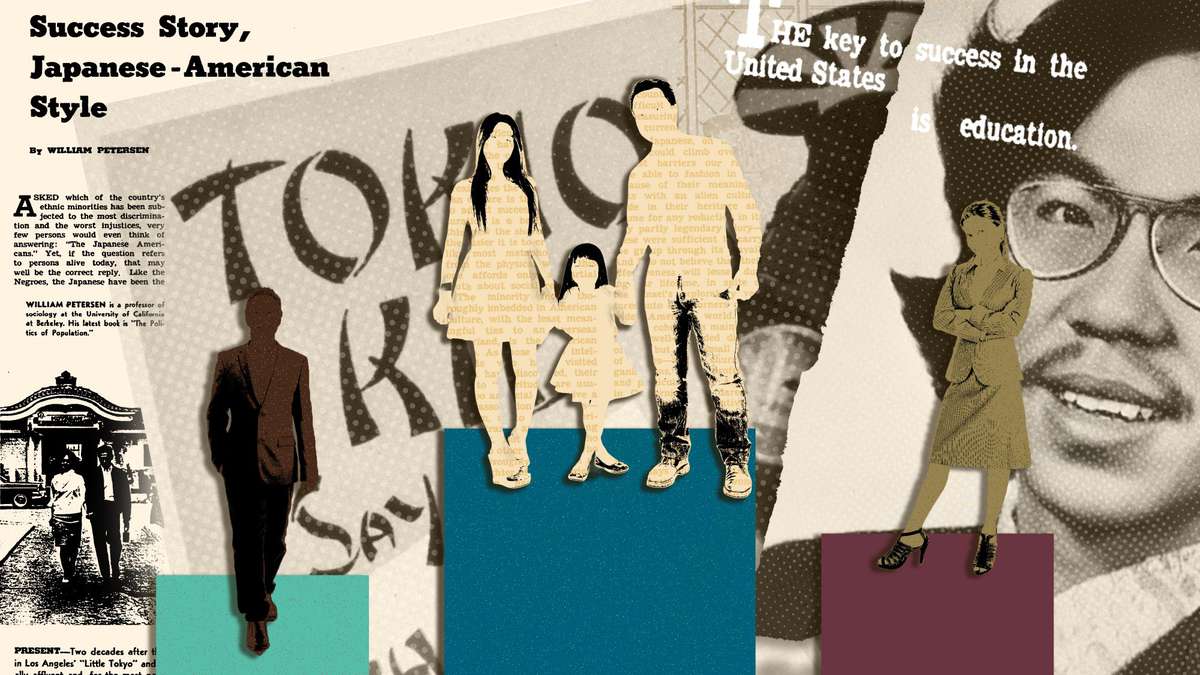Psychiatrist Leela R. Magavi, MD, vividly remembers her third-grade teacher asking her to spell "Byzantine" in front of the class. "When I was walking outside to join my friends for recess, she pulled me aside and said, 'I knew you would be able to spell that word,'" Dr. Magavi, who is based in Southern California, tells Health. She also has childhood memories of a friend asking her if her neighbor was Asian, simply because she heard someone playing violin.
These are first-hand examples of the model minority myth in action, something that Dr. Magavi says is ubiquitous due to perpetuated stereotypes, media, and familial influence.
 Model-Minority-Myth / Photo Illustration by Jo Imperio for Health
Model-Minority-Myth / Photo Illustration by Jo Imperio for Health
What does model minority mean?
Sociologist William Pettersen is credited with popularizing the term "model minority" in a 1966 New York Times Magazine article. It refers to minority groups that have seemingly achieved great success in contemporary Western society, and is typically used to describe Asian Americans, who are perceived to have reached greater educational and financial success than other immigrant groups.
In his piece, titled Success Story, Japanese-American Style, Pettersen cemented an already well-established stereotype of Asians as being obedient and hard-working, versus African Americans, who were fighting against discrimination and inequality.
On the surface, the "model minority" label seems to be a compliment—appreciating and honoring Asian Americans for their achievements. It's also been used as a counterargument for anti-Asian racism. But classifying any racial group as a model minority is actually disguising anti-Asian racism, Xiaobei Chen, PhD, professor and associate chair of the department of sociology and anthropology at Carleton University in Ontario, tells Health. It's also a coverup for a number of other issues, including poverty and labor abuse, she adds.
"The model minority myth reduces Asians to a stereotypical image," Chen tells Health. "It doesn't see them as individuals and groups with cultural, class, and other differences. It also attributes so-called 'success' to culture, and implicitly blames those who are deemed as not successful for not trying hard enough."
RELATED: What to Know About Allyship—And Why It's More Important Than Ever
The impact of the model minority myth on mental health
The negative effects of the model minority stereotype on mental health can be severe. "Model minority stereotypes can lead to debilitating anxiety and perfectionism," Dr. Magavi says. It can also exacerbate feelings of imposter syndrome, a psychological phenomenon where individuals doubt their skills and talents and persistently worry about being exposed.
Imposter syndrome can affect minority groups disproportionately, Dr. Magavi adds. In her practice, she evaluates many Asian Americans who tell her that they feel out of place or undeserving despite their commendable accomplishments, due to social media and distorted communication. "Many people perceive their own performance as subpar regardless of accolades or positive feedback," she explains, adding that model minority stereotypes can also cause demoralization and worsen mood and anxiety symptoms.
Dr. Magavi has evaluated minority children who she believes clearly have attention deficit hyperactivity disorder (ADHD) but were not provided with any diagnosis or treatment by prior physicians. "The reasons are multifactorial," she says. "Many minority parents and children tend to minimize symptoms. Some minority parents attribute ADHD symptoms solely to laziness and lack of initiative, which tends to be a multi-generational, cultural trend." She adds that some physicians are unaware of their biases and consequently misdiagnose individuals.
RELATED: What Is Xenophobia—And How Does It Affect a Person's Health? Here's What Experts Say
Breaking free of the model minority myth
If you feel like you've been caught in the trap of the model minority stereotype, Dr. Magavi suggests trying to differentiate your own expectations from societal expectations—which often starts with putting pen to paper. "Journaling can simplify this often-difficult activity," she says. "Individuals can combat self-induced feelings of inadequacy and elements of imposter syndrome by routinely making lists of their accomplishments inclusive of small yet significant victories."
For instance, if you're regularly comparing yourself to a colleague, it might help to put together a list of various reasons you're just as qualified as your peer to land yourself a new role or opportunity. Positive affirmations and gratitude letters to yourself could also bolster self-compassion and confidence by helping you appreciate your victories and divert attention away from perceived failures.
"I encourage individuals to own their accomplishments rather than solely inferring that luck or others helped them," Dr. Magavi says. "Visualizing success and imagining victories could alleviate anticipatory anxiety and negate negative feelings. Therapy may help undo negative patterns of thinking and behavior, talking to peers in support groups could help normalize experiences and process feelings, and in some cases antidepressants are required to treat comorbid anxiety and depressive symptoms."
A huge amount of work still needs to be done at a societal level to dispel the model minority myth. For Chen, it's crucial that the model minority is recognized as a stereotype—and one that is harmful. "People need to understand that Asians are individuals," she says.
To get our top stories delivered to your inbox, sign up for the Healthy Living newsletter
